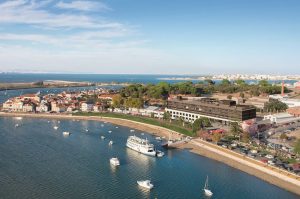History of the Mundet Cork Factory
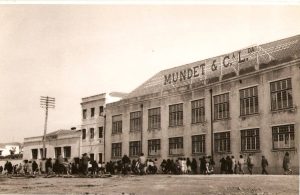
Background
In 1860, the chemical and soap factory of the French company H. Pardel & C.ª was set up on the Bela Vista estate, an agricultural property located at the entrance to Seixal and belonging to the House of the Marquis of Abrantes.
Seven years after the factory began operating, it was sold to Henri Borguet, who continued its work.
After around five decades of working in the factory and the presence of various French and Belgian masters, at the beginning of the 20th century the property became known as Quinta dos Franceses.

In 1905, part of the property was sold to L. Mundet & Sons, Inc., a Spanish company founded in the 19th century by the Catalan businessman Lorenzo Mundet in Palmos, Catalonia. It expanded its business to Portugal, setting up shop in Seixal.
History
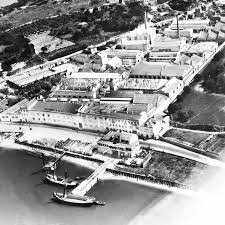
During the first half of the 20th century, Mundet expanded worldwide, becoming an essential brand in cork production, opening factories in the United States of America, Canada, Mexico, Spain, Algeria and the United Kingdom, while maintaining the factory in the municipality of Seixal as the main commercial hub for the others.
In 1923, the Montijo factory was opened, followed by Mora and Amora, and the expansion into Portugal ended with the Vendas Novas factory in 1949.
As a result of the expansion of the business, Mundet became an important cork organisation worldwide, with factories in Portugal, Spain, the United States of America, Canada, Mexico, Algeria and England. Mundet & C.ª, Lda. (successor in Portugal to L. Mundet & Sons, Inc, from 1922 onwards), in addition to the factories in Seixal and Amora, had plants in Montijo, Mora, Ponte de Sor and Vendas Novas.

The main reason for establishing the company in Portugal in 1905 was the large supply of raw materials needed to supply its factories.
In the 1950s and 1960s, the company used around 35,000 tonnes of raw material every year.
Producing a wide range of cork products (natural and agglomerated), Mundet had an international product distribution network and participated in the globalisation of the cork sector.
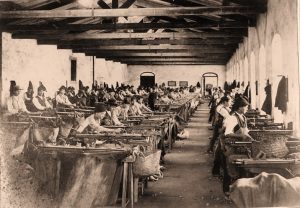
During the 1960s, the factories in Amora, Mora and Ponte de Sôr closed their doors and after 1970 only the industrial units in Montijo and Seixal continued to operate. In 1988, the Mundet factories in Seixal and Montijo were gradually reduced in number of workers, thus beginning the insolvency process, which was definitively declared in June 1993.
Throughout the 20th century, the daily life of Seixal’s inhabitants was punctuated by the Mundet factory’s conch, which simultaneously signalled the pace of work at the plant and provided the population with information on the time of day.
With 200 workers at the time the factory was set up in Seixal, most of them women and minors from local fishing families, the plant employed 4,223 cork workers in 1947, possibly the most significant decade in the development of the company’s activity in Portugal.
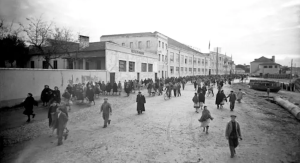
Throughout its period of activity, the business history of Mundet & C.ª, Lda. is intertwined with the history of the labour movement and the socio-cultural and economic development of the local community. There have been families where it was the workplace of parents, children and sometimes grandparents.
Before
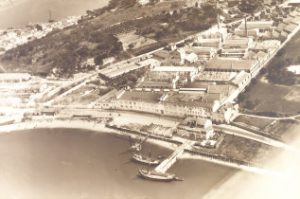
Today
